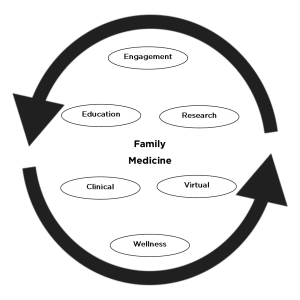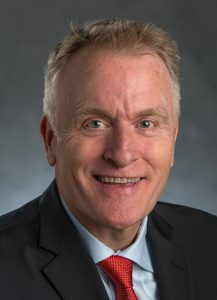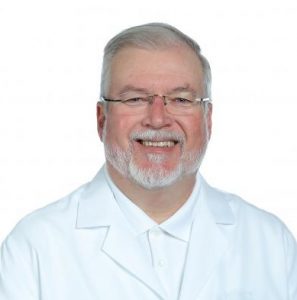Department of Family Medicine Annual Report
Dear Colleagues, Collaborators, and Stakeholders,
It is with great pleasure that we share another annual report with you for the Department of Family Medicine within the College of Human Medicine, Michigan State University.
- Instruction Report
- Clinical Services Report
- Research/Scholarship Report
- Geriatrics Division Report
- Department Administrative Report
2019 was an exciting year! There were several challenges facing the Department, the healthcare system, and other critical structures of relevance for the health and well-being of the population and patients we serve. Of course, many of these challenges were put in a different perspective as the COVID-19 pandemic hit us.
We are now starting to see the fruit of the “5-year plan” that our leadership, faculty and staff defined in a Department-wide process which included: a retreat under the guidance of external experts, evolving internal discussions, and outreach to partners and stakeholders within and external to the University statewide.

Department of Family Medicine Faculty & Staff
As a Department, we have continued to raise the bar in all four of our mission areas: Instruction, Clinical Services, Research/Scholarship and Outreach:
- In instruction, Family Medicine’s Clerkship and Selective offerings have been very popular choices in the Late Clinical Experience (LCE). We are proud to note the continuous upward trend in our medical students choosing Family Medicine as their #1 career choice. During the most recent Match, Family Medicine ranked first among our medical students, with 19.3% choosing it. We also have the privilege of being the academic hub for MSU’s state-wide network of Family Medicine residencies – now expanded to include 10 affiliated residency programs and hospital partners. Not only does the network focus on providing excellent residency training and leadership development, they are increasingly becoming strategic partners in applied primary care research and addressing population health. Thanks to close collaboration with the Dean’s office and our many preceptors across the state, we were able to continue offering high-quality instruction to our medical students throughout the COVID-19 lockdown. After some initial challenges, we were able to offer instruction, clinical rotations, and exams using a mostly virtual platform. This has included new curricula for geriatric virtual healthcare (telehealth).
- Our clinical operations continue to make progress in addressing several challenges. During the past year, we developed a plan to make sure the co-location of MSU’s two Family Medicine clinics would be successful in leveraging the expected benefits. The impact of the COVID-19 epidemic has been substantial on Departmental operations. However, it has sharpened our focus on our clinical mission. Through the hard work and dedication of our providers and staff, we converted our MSU Healthcare Family Medicine Clinic from office-based to virtual/on-line operations and ultimately were able to realize substantial gains in productivity and financial stability for the clinic.
- Our research faculty are now publishing and securing external grants at a high level. Our ranking in the Blue Ridge Institute Report, based on NIH funding, has gone from non-ranked in 2017, to #38 in 2018 to the most recent #20! Our research areas cover the entire translational spectrum – from basic sciences, to clinical and population health research. Figure 1 depicts the dynamic interaction between academic research and collaborating communities, using a seamless bi-directional flow of information between basic research and the discovery and application of new knowledge to address critical community health concerns. The community is an active partner in most of our research projects. As an example, the Department has partnered with partner hospitals around Implementation Science, looking for methods to promote the adoption and integration of evidence-based practices, interventions and policies.

Figure 1. Seamless and bi-directional community-based participatory research model. (Adapted from UW Institute for Clinical and Translational Research-UW-Madison)
Much of our clinical research was put on-hold; however, we were able to launch several on-line projects targeting the impact of COVID-19 on the health, well-being and performance of healthcare providers and staff. In collaboration with several professional nursing organizations, we surveyed nurses to determine how the epidemic, and the lack of adequate personal protective equipment (PPE), impacted their mental health and professional performance. Many of the patients that have ‘recovered’ from COVID-19 continue to suffer from the poorly understood but often devastating Post-COVID syndrome (aka Long-Haulers). We have launched a large-scale study to get a better understanding of the prevalence of Post-COVID syndrome, its impact on health and well-being, and what kind of treatments might work. The goal is to contribute to knowledge that will prevent and treat Post-COVID Syndrome.
- As one of our most important outreach efforts, the Department has launched a dedicated effort to address the substance use epidemic in the state of Michigan. Of special concern is the adverse impact observed in the rural areas of the state. In collaboration with MSU Extension and the Health Department of Northwest Michigan, we have developed the Michigan Substance Use Prevention, Education and Recovery (Mi SUPER) initiative. In another project, we are working to expand these efforts to the Upper Peninsula. The projects are funded by a Substance Abuse and Mental Health Services Administration (SAMHSA) Rural Opioid Technical Assistance (ROTA) grant and a United States Department of Agriculture (USDA) Rural Health and Safety Education (RHSE) grant, respectively.
Finally, it’s important to recognize the excellence exhibited by the faculty and staff of the Department, including several Departmental, College, and national accomplishments:
- Molly Polverento, MSEd, CPH, was promoted to Senior Academic Specialist
- Julie Phillips, MD, MPH, was promoted to full Professor, as well as winning the 2020 Society of Teachers of Family Medicine (STFM) Research Paper of the Year Award
- Masako Morishita, PhD, was promoted to Associate Professor with Tenure
- Karla Cody was appointed to the Dean’s Staff Advisory Committee and named Vice-Chair
- Joy Hull received the CHM 2020 Academic Affairs Staff Excellence Award
- Andrea Wendling, MD, FAAFP, was honored as the 2020 Outstanding Educator from the National Rural Health Association
In closing, the Department has come a long way over the past year, and instead of marking time, we envision it will continue to thrive and develop as we adapt to the peri-COVID-19 new world.
Best regards,





